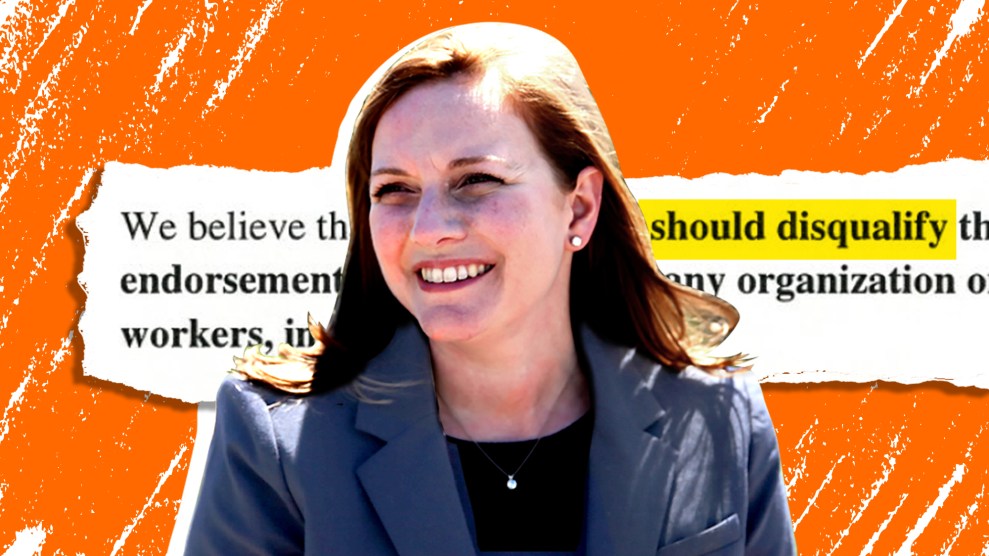
Mother Jones illustration; Lizzie Pannill Fletcher for Congress
With support from progressive groups like EMILY’s List, Houston attorney Lizzie Pannill Fletcher has proven herself a top Democratic contender to flip Texas Republican John Culberson’s congressional seat this fall. But on Thursday, Fletcher faced stiff criticism from an unlikely source: organized labor.
In a statement announcing its endorsements, the Texas AFL-CIO told members that it opposed Fletcher’s candidacy. The group’s opposition stems from a lawsuit that dates back to the mid-2000s and was resolved in 2016, during which Fletcher’s law firm, AZA, represented a Houston commercial cleaning company that won $5.3 million in damages from a labor union affiliated with the Texas AFL-CIO. (Fletcher is an AZA partner; an AZA associate, Adam Milasincic, is running in a state primary race as well.)
Zeph Capo, president of the Texas Gulf Coast Area Labor Federation (the Houston-area arm of the Texas AFL-CIO), said in a letter to the Harris County Democratic Party that AZA investigators intimidated immigrant workers who may have otherwise testified and humiliated those who did. Milasincic and other AZA lawyers turned the courtroom into an “anti-union and anti-immigrant circus,” according to the letter, which was published by the Texas Observer.
“Partners in firms like that are the last people we want to see in public office,” Capo told Mother Jones on Thursday.
In her own letter to the Harris County Democratic Party, Fletcher said she was not involved in the case. She added that the assumption that all lawyers at a firm unanimously agree on every case taken is a misunderstanding of her profession’s role.
Fletcher’s spokeswoman, Katherine Towell, said Thursday that much of the candidate’s work involves defending workers who face lawsuits brought by their employer over noncompete agreements. “You really can’t fault someone for something that they had no involvement in,” Towell said.
Texas AFL-CIO’s decision came after Fletcher met in December with the Texas Gulf Coast Area Labor Federation, which has more than 60,000 members in the greater Houston area. The fact Fletcher wasn’t a lawyer on the case, Capo told Mother Jones, wasn’t enough for the Texas AFL-CIO to support her.
Interestingly enough, the district—one of the Democrats’ top targets to flip this fall—is predominantly an upper-middle-class one (median family income is $71,000) with limited union membership. And even though there are six other candidates competing in the Democratic primary, the Texas AFL-CIO has no plans to endorse any of them before the primary on March 6. For the union to endorse a candidate, that person has to garner two-thirds support, Capo said. None of the others made the cut.

















